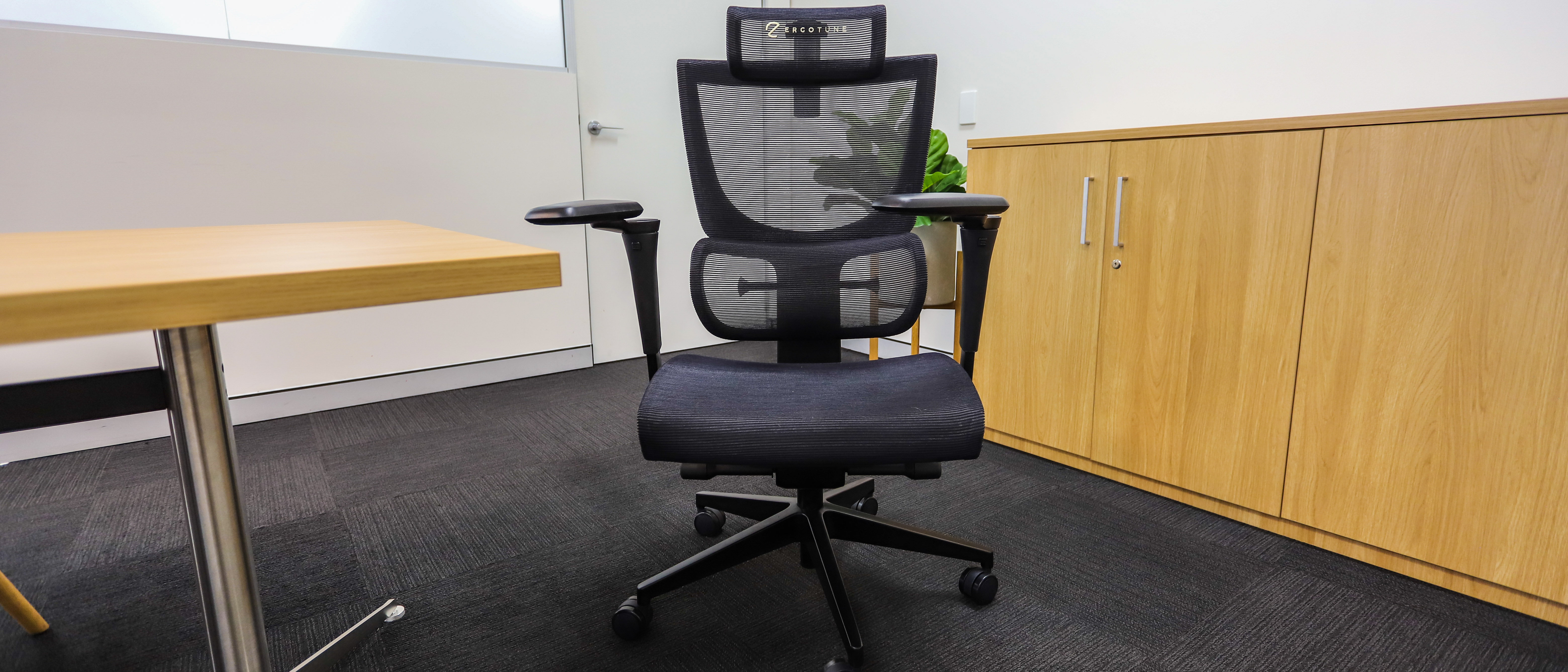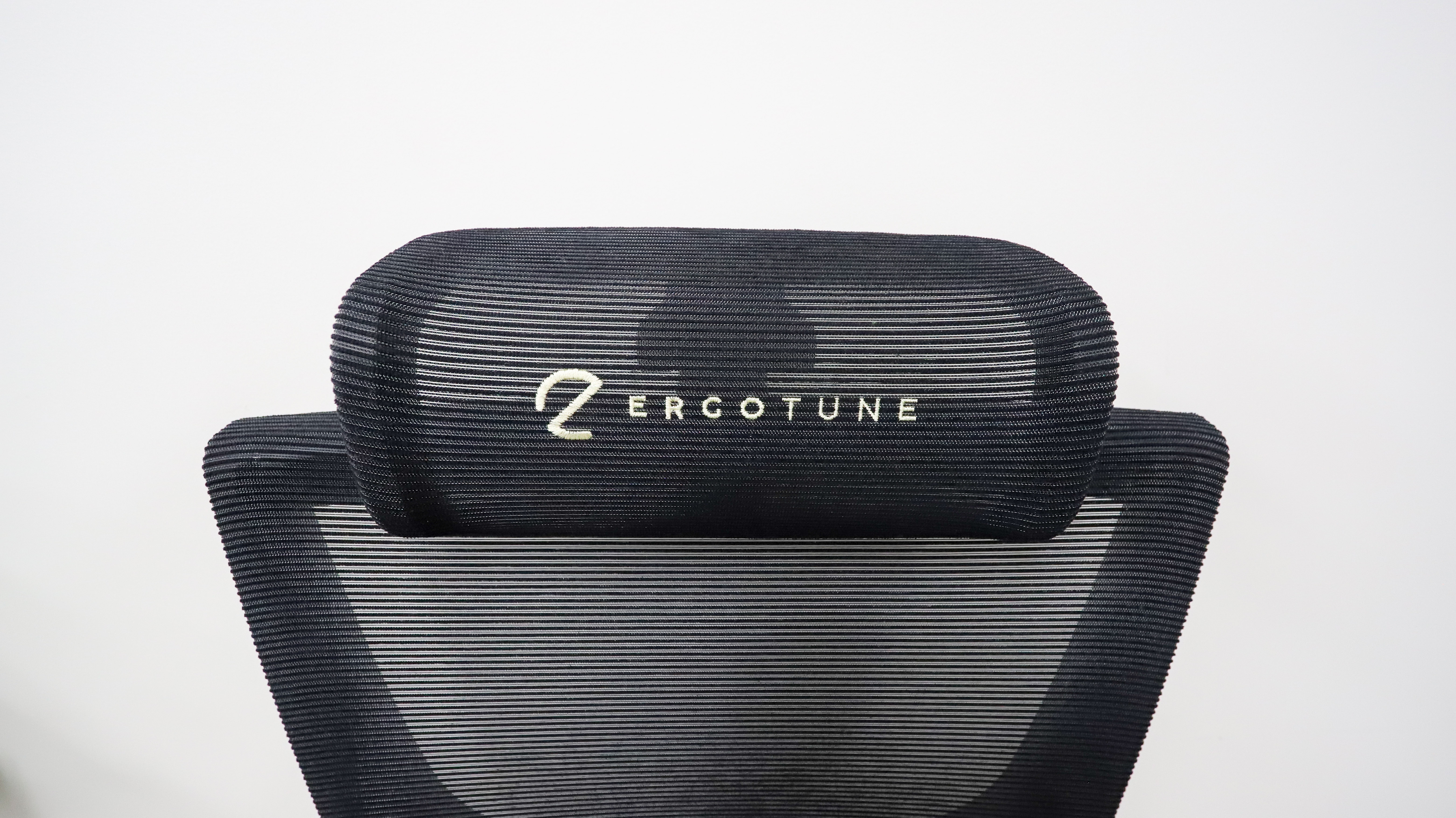Our Verdict
The low-ish price point may not suggest it, but this is an extraordinarily versatile ergonomic chair, best for office workers, but which can double for gaming if you're low on space and budget.
For
- A lot of ergonomic customisation
- Breathable mesh feels very robust
- Neutral look is professional, we guess
Against
- You may not want a professional look
- Can take a long time to get the "right" fit
PC Gamer's got your back
Anyone forced to buy an office chair for home use at the height of the pandemic, will know that there's a lot of office chairs, at wildly varying prices, and with a lot of promises. You may have felt like you needed to employ a cryptologist to get your head around the jargon. What is "lumbar support"? How on earth can an armrest be "5D"? Will the pneumatic stem hurt me?
ErgoTune is a Singapore-based maker of chairs who currently only ships to Singapore and Australia. The brand is well-known in the former, but in Australia it's still fairly obscure. The company's basic modus operandi seems to be: make mid-range chairs with an embarrassment of features. That means virtually every part of the ErgoTune is modular, to the extent that you'll normally find on a gaming chair. Indeed, the ErgoTune is a good middle ground between "office" and "gaming" chairs, especially if you're not particularly fond of the usual gaming chair stylings.
First thing's first, though: the ErgoTune V3 Supreme comes in three height options, which is determined basically by the pneumatic stem (that's the adjustable pole that connects the seat to its base). These range petite (140cm - 159cm), standard (160cm - 179cm) and tall (180 - 210cm). We reviewed the standard version.
The ErgoTune comes in a whopping huge box, so unless you have a large vehicle or ute, you're going to want to get it delivered to your door. Once you've managed to prise it open you've only got around 20 minutes of assembly time before you're actually seated in it. As is custom, the package comes with a hex key so you won't have to fish out a tool box.
The five wheels and pneumatic stem slot easily into the base, and fitting the screws into the armrests and backrest is phenomenally easy thanks to the hex key. Unlike some other self-assembled chairs, the instructions are clear and there's very little room for error.
You might want to have another person around to help with the heavier aspects (the instructions recommend it), such as fitting the stem to the base, but I managed to do it myself with not too much difficulty.
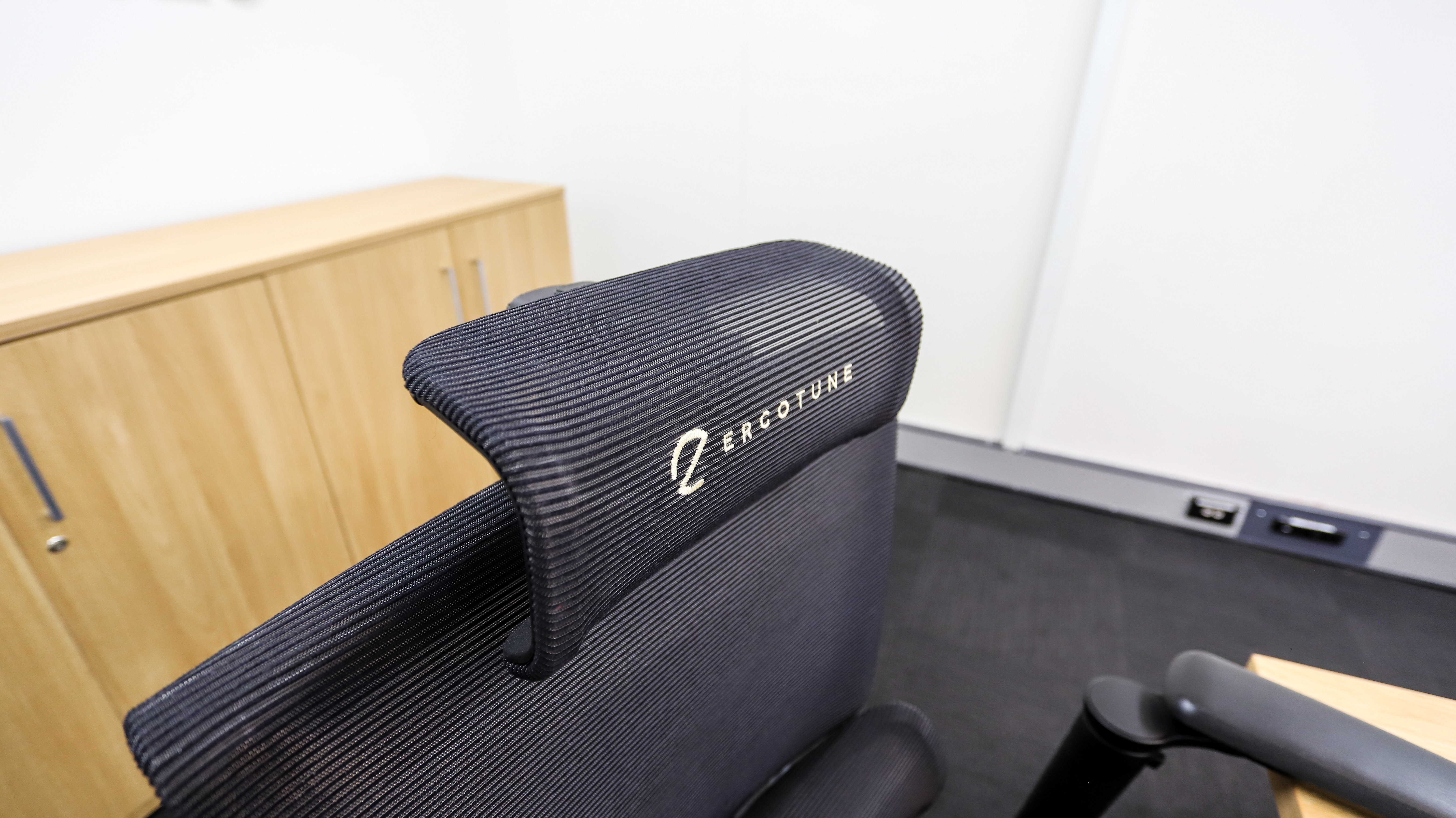
The headrest's height and depth is fully customisable.
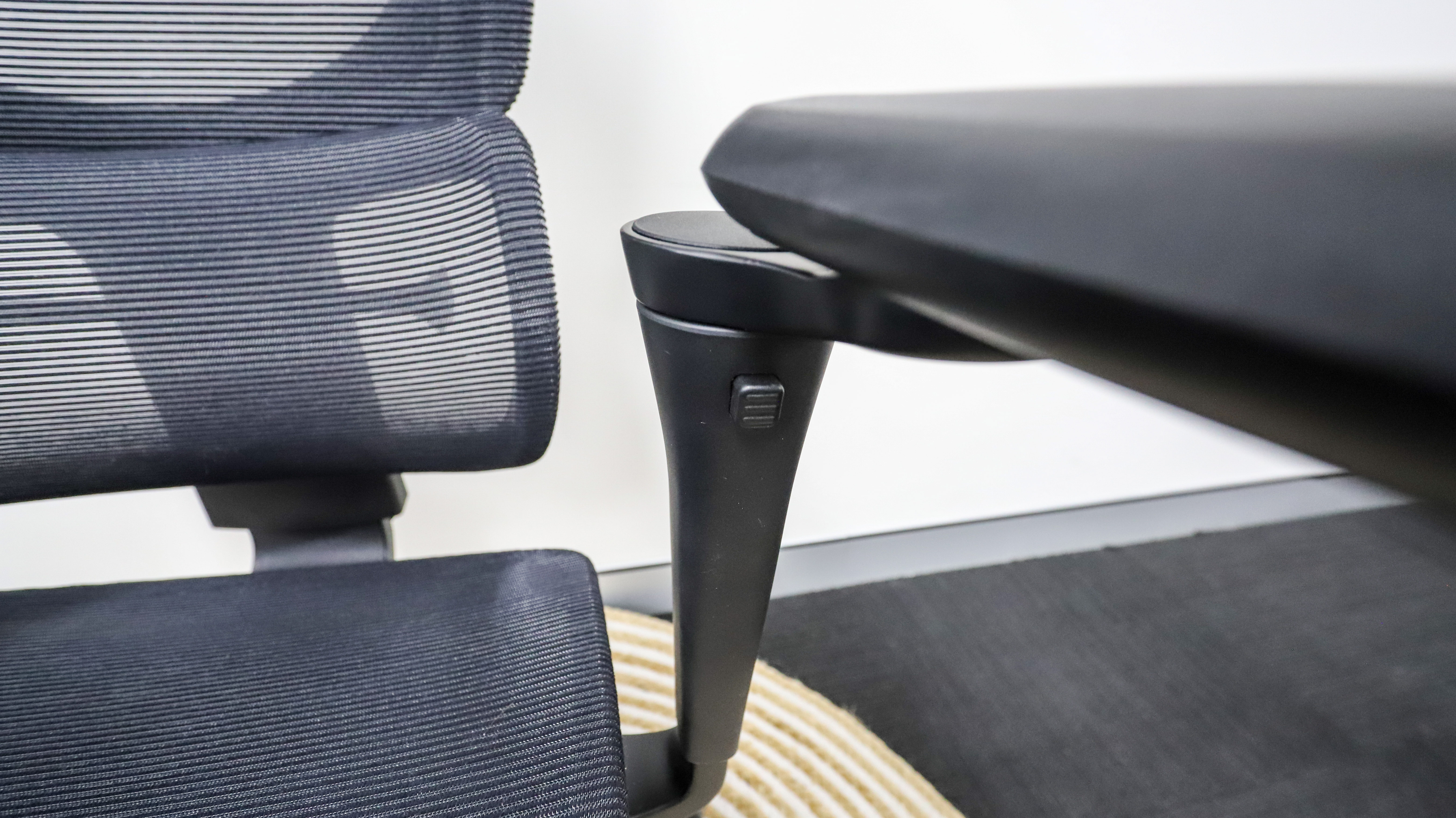
The 5D armrests have a huge range of adjustability.
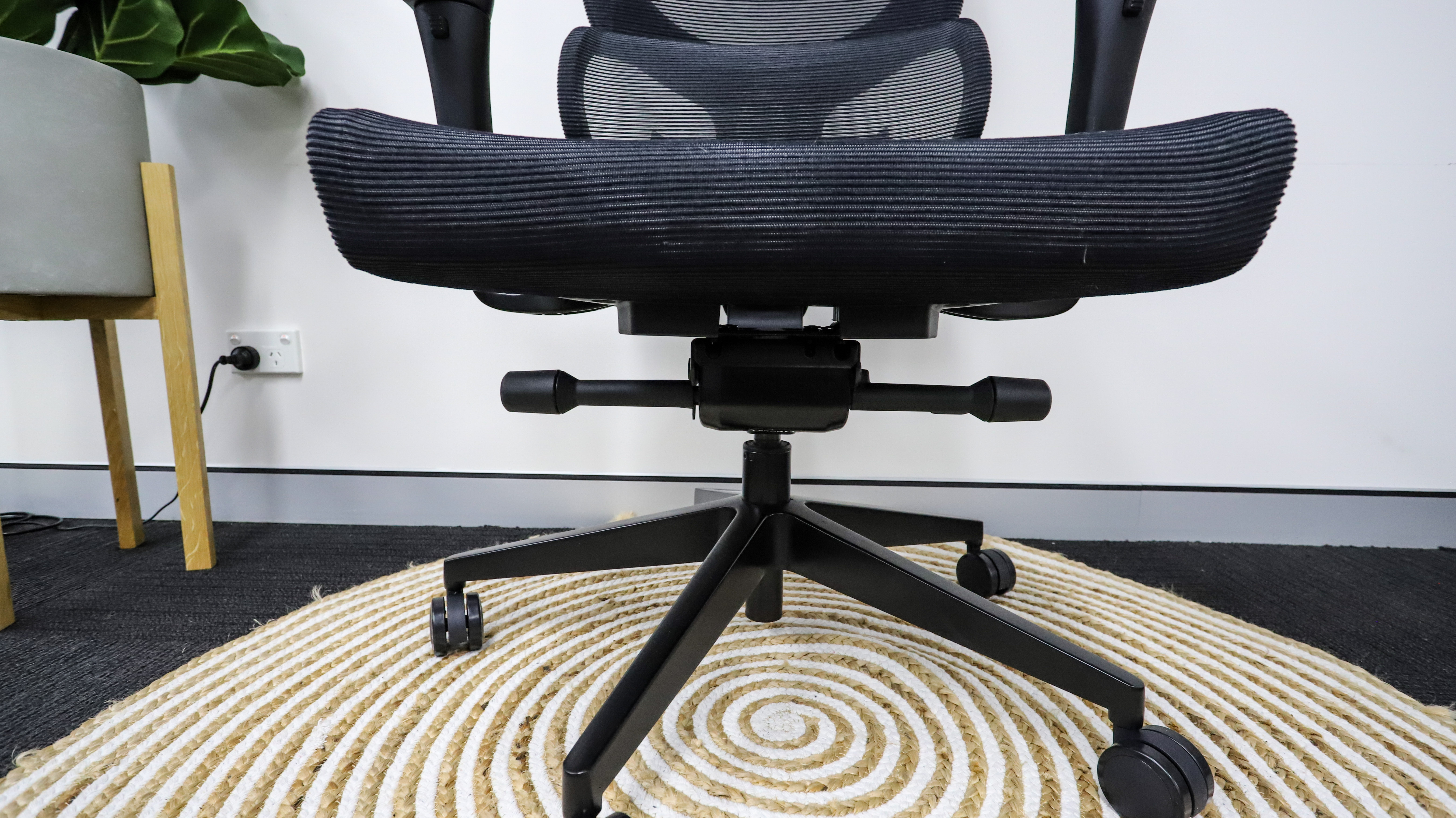
The base of the ErgoTune Supreme V3.
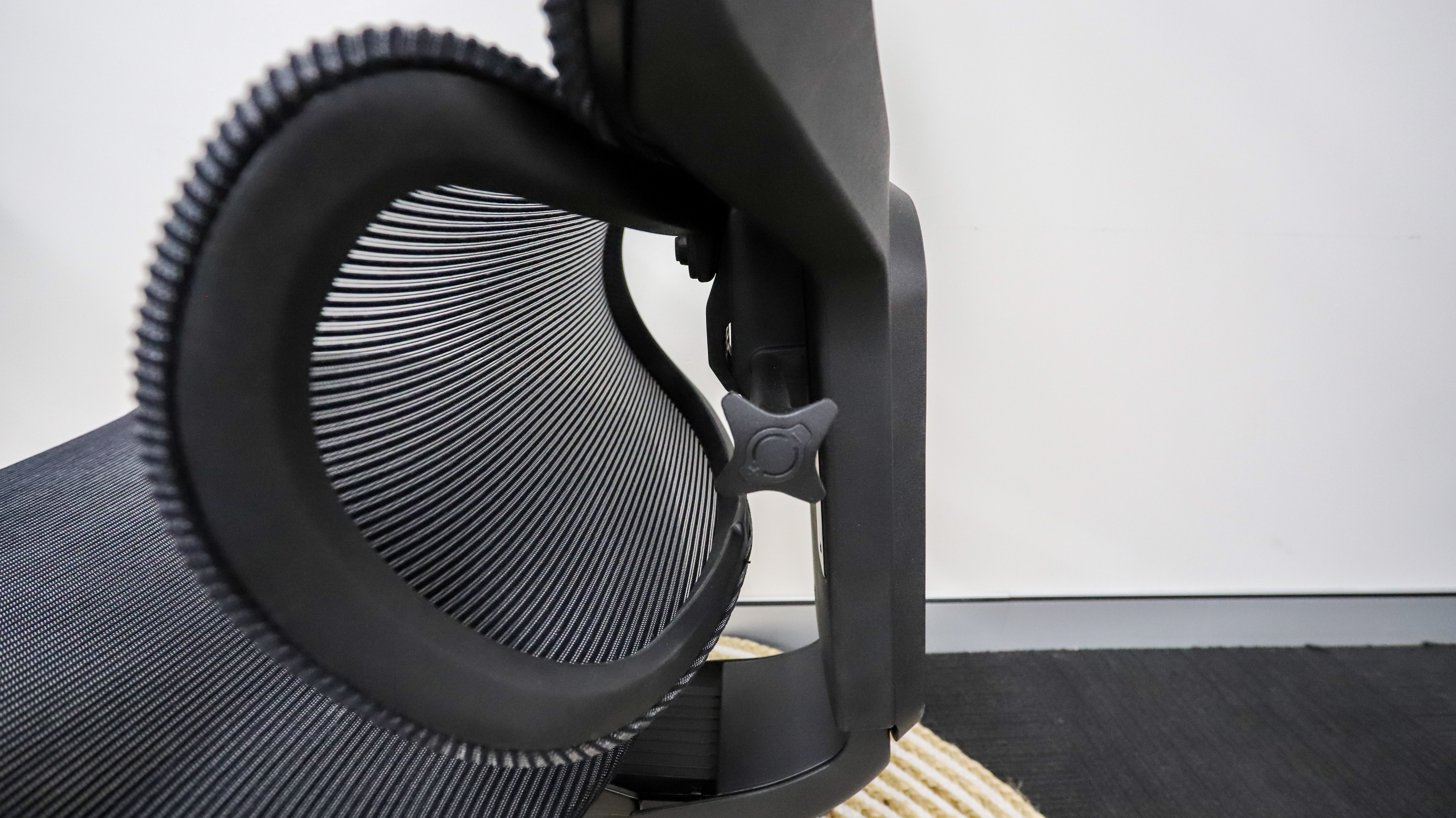
The built-in (and adjustable) lumbar support is made of the same mesh used on the base and backrest.
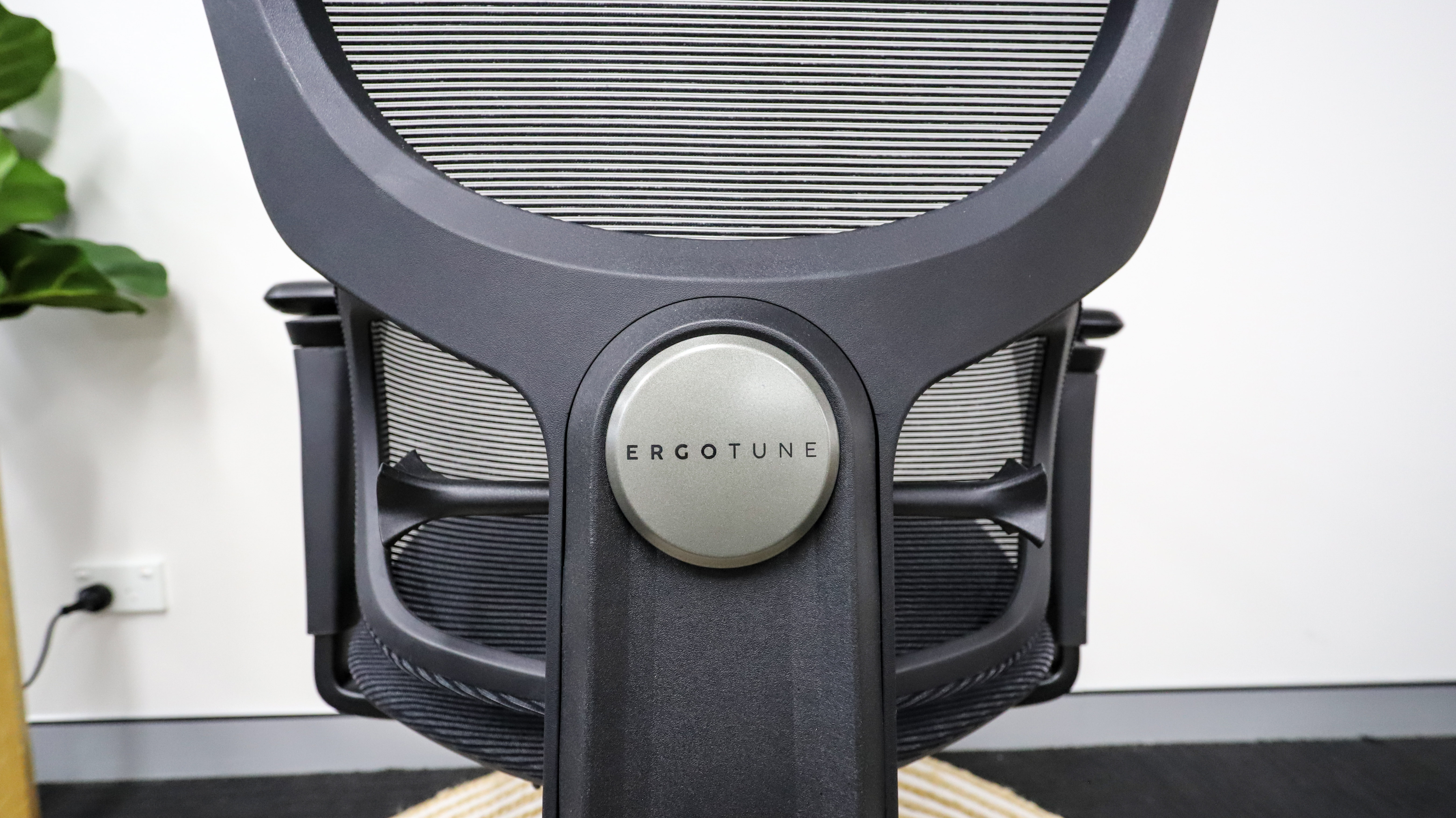
The back of the ErgoTune Supreme V3.
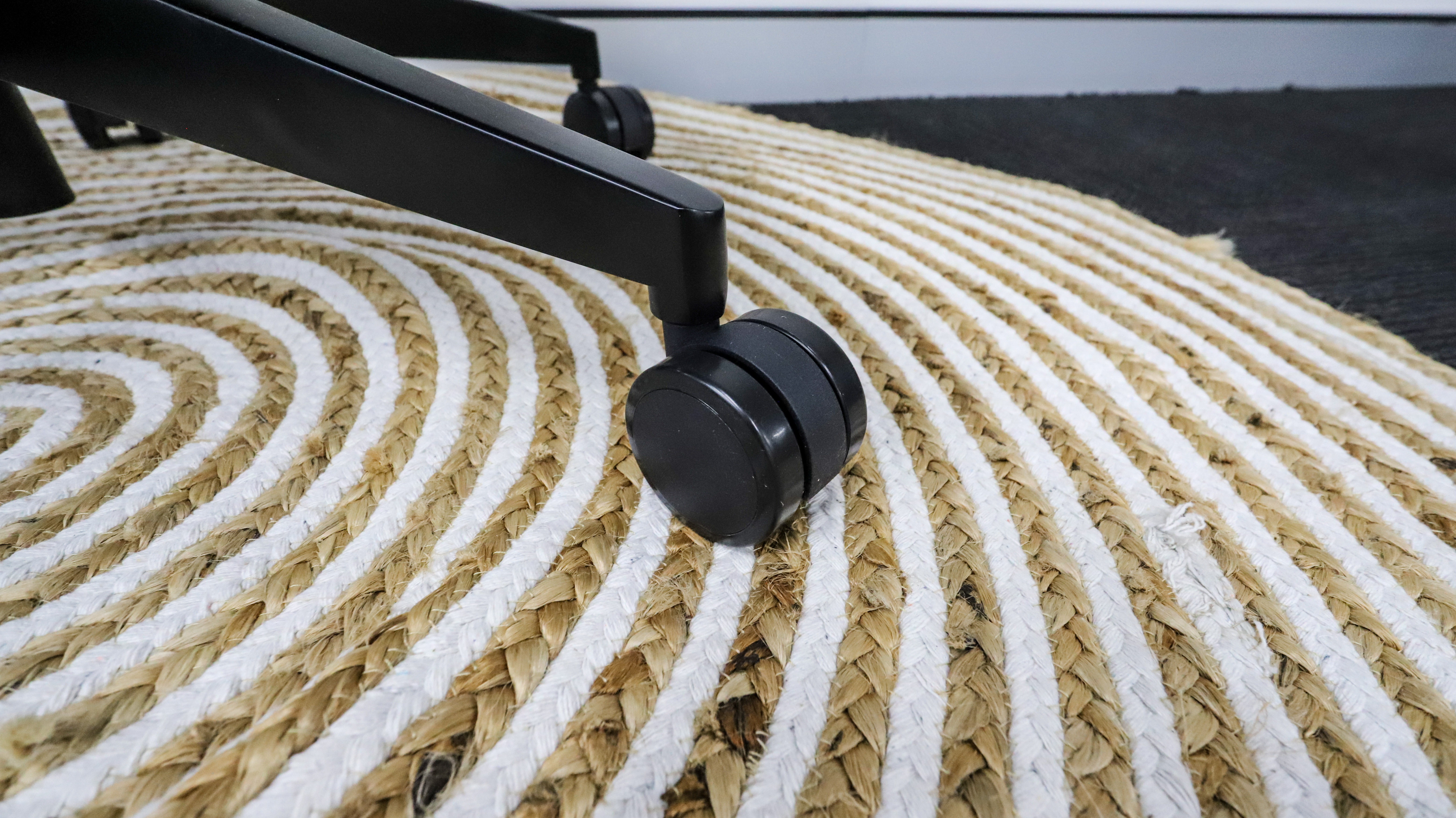
Throned
If you're accustomed to the more cushy pleasures of gaming chairs, the ErgoTune seems like a hard task master at first. It took us a day of use before our body—and the seat itself—seemed to soften into shape, and given the modular nature of the chair, finding the right settings can take some time too.
You can adjust the seat height via the pneumatic stem with a lever on the right side of the chair, while the left lever extends or retracts the seat itself, which provides granular control over the seat's recline. Working these levers can take some getting used to: when controlling the recline of the backrest, you need to twist the lever once you've found your preferred gradation (or just leave it untwisted, if you like the rocking chair effect).
Meanwhile, the lumbar support—which cannot be removed, mind you—is controlled by twisting a handle on the back of the chair. When this handle is loosened, the lumbar support can be moved up or down; once tightened, it can be further tightened to lift the base in order to press more firmly into your lumbar region.
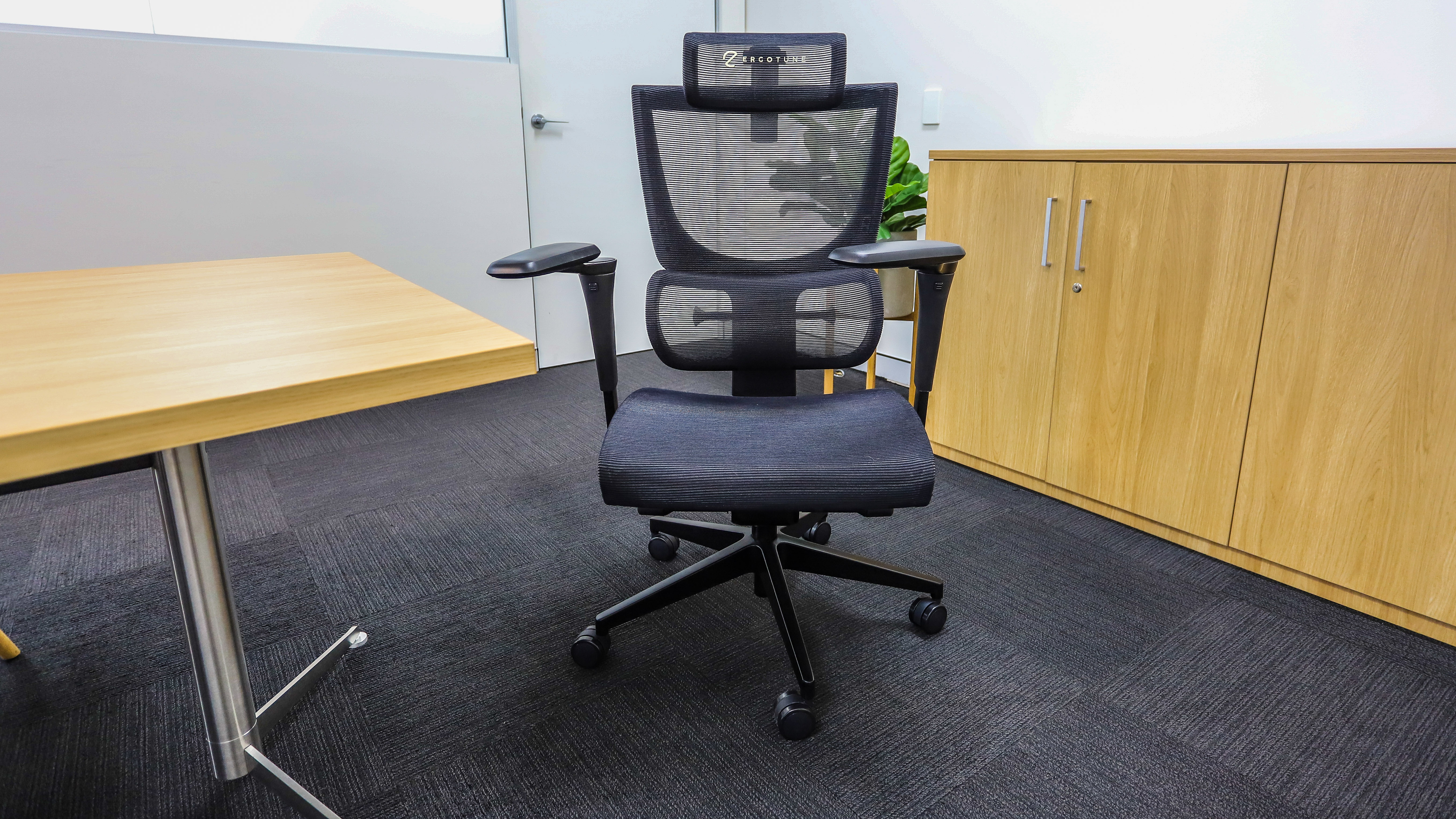
Honestly, you'll spend more time fiddling with these variables to get the right "fit" than it takes to put the chair together itself, but that's not a complaint: it's just a result of the options available, which will require some experimentation on the user's part to get just right. Meanwhile, you're probably going to want to toggle between at least two settings on a day-to-day basis, depending on how you want to sit. Given the granular settings, that will probably prove quite fiddly at first.
The 5D armrests rotate a full 360º and then some, which means you can keep them in their conventional positioning (pointed directly forward) or move them inward, all the better to relax during those interminable video conferences when you might have little use of your mouse and keyboard. These armrests can also be lifted and lowered by roughly 5cm, which not only helps with posture, but can also be useful for stowing this chair under a desk.
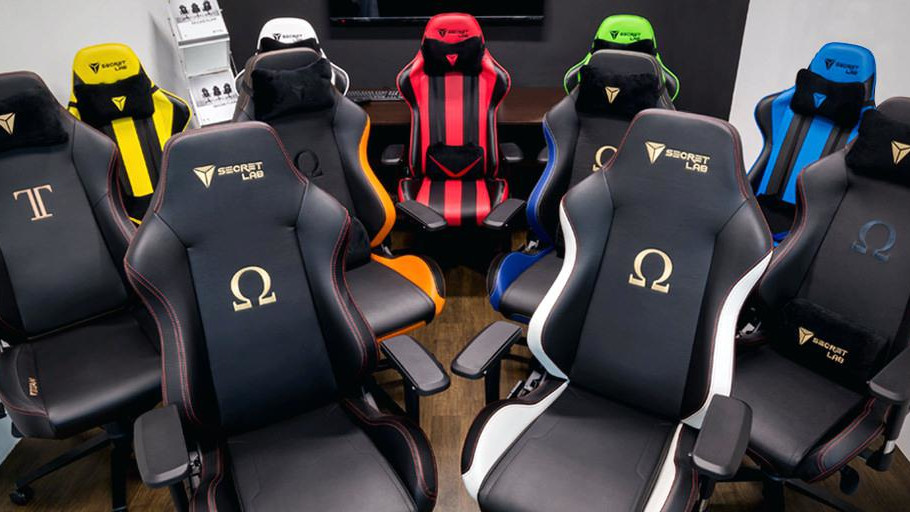
Best chair for gaming: the top gaming chairs around
Best gaming desk: the ultimate PC podiums
Best PC controller: sit back, relax, and get your game on
The base and backrests are breathable mesh, of an apparently extra-strong German vintage. After being seated in this chair for eight hours a weekday for just over two months, I'm pretty confident that this mesh is robust and will stand the test of time, and while it isn't harsh on the posterior, it's worth keeping in mind that this is an office chair and not a plush couch – there's nothing laidback about this chair. It's comfortable for its deskbound purposes, and its breathable nature means that I never felt sweaty or stuffy, but unlike some high-end gaming chairs you're probably not going to want to sit in it for longer than you have to.
But that's the thing: the V3 Supreme is very much an office chair for the working from home generation, that can also double as a gaming chair. If you're after something ultra-premium that functions solely as a leisure throne, a Secretlab might be your best bet. If you spend all day at a desk working, and need a chair that can also feel good while gaming, the ErgoTune is a good solution.
The low-ish price point may not suggest it, but this is an extraordinarily versatile ergonomic chair, best for office workers, but which can double for gaming if you're low on space and budget.

Shaun Prescott is the Australian editor of PC Gamer. With over ten years experience covering the games industry, his work has appeared on GamesRadar+, TechRadar, The Guardian, PLAY Magazine, the Sydney Morning Herald, and more. Specific interests include indie games, obscure Metroidvanias, speedrunning, experimental games and FPSs. He thinks Lulu by Metallica and Lou Reed is an all-time classic that will receive its due critical reappraisal one day.
